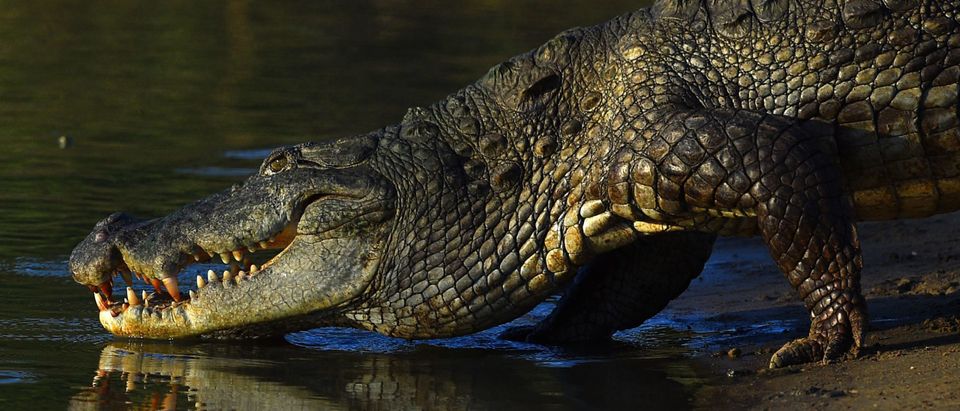Scientists in Australia discovered the bones of a young dinosaur inside the fossilized remains of a new crocodile species known as Confractosuchus, Sky News reported Sunday.
The 95 million-year-old bones were excavated from a sheep station in Queensland in 2010 and were “densely packed in a chunk of rock,” according to Sky News. Using X-ray micro-CT scanning technologies, scientists were able to identify where the bones were located and build a 3D digital specimen, a process which took ten months.
Through that process, scientists not only found the partially preserved skeleton of the crocodile, but also the skeletal remains of a young ornithopod dinosaur inside its stomach. (RELATED: Well-Preserved Fossilized Dinosaur Egg Leaves Scientists Baffled)
Fossils of a new species of crocodile have been unearthed in outback Queensland, and it’s revealed the first evidence of crocs hunting dinosaurs in Australia. https://t.co/VZ3A1cpmr5 #7NEWS pic.twitter.com/EAnkh0zMEN
— 7NEWS Brisbane (@7NewsBrisbane) February 11, 2022


